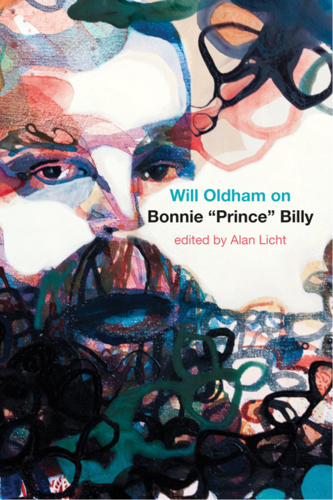
Will Oldham on Bonnie "Prince" Billy
کتاب های مرتبط
- اطلاعات
- نقد و بررسی
- دیدگاه کاربران
نقد و بررسی

August 27, 2012
Overwrought, overwritten, and overanalyzed, musician and author Licht's (Sound Art: Beyond Music Between Categories) 400-page Q&A with musician and actor Will Oldham (aka Bonnie "Prince" Billy) is proof that "just because you can doesn't mean you should." Conceived as an opportunity for Oldham to answer questions about his past work in a single volume so he wouldn't be bothered with them in future interviews, Licht's untethered, rambling discussion allows Oldham to dwell at length on whatever strikes his fancy, making for a humorless, plodding, solipsistic slog that will test the endurance of even the most devoted fan. Licht probes him on song lyrics, album covers, and the merits of working with a litany of musicians on each album, and while these and other topics are to be expected, Licht all too often lets the conversation get away from him. To wit: in the midst of a discussion about one of Oldham's first tours, Licht asks, "Did you go camping as a kid?" This predilection for distraction and pretension makes for a wearying read. Fans will likely appreciate Oldham's thoughts on the hazards of songwriting in the first person, performing covers (like R. Kelly's "The World's Greatest") and being covered (Johnny Cash covered Oldham's "I See a Darkness"), and Licht's meticulous discography of Oldham's output under various guises, but casual listeners would be better served by donning headphones and hitting play. Illus.

August 1, 2012
Indie-folk cult hero Will Oldham's oral dissertation on his enigmatic folk-rocker alter ego, Bonnie "Prince" Billy. With the content composed solely of respected New York City musician Licht's (Sound Art: Beyond Music, Between Categories, 2007) probing interviews with Oldham, the book sometimes slides into the kind of self-assessing navel-gazing usually reserved for the analyst's couch. Nevertheless, Licht seems to know all the right buttons to push, allowing his subject to reel off into fits of philosophic banter about everything from the influence of dreams in his work to the usefulness of drugs in the creative process. Licht usually begins a chapter by hovering over a loose theme (film music, music as communal effort, recorded music as opposed to live music, etc.); then he often branches off on some strange and unexpected tangents, such as the viability of Jimmy Buffett, the main points of stage etiquette, Glenn Danzig and the pros and cons of going to sleep. But if there's any unavoidable characteristic that runs throughout all these conversations, it's the importance Oldham places on exclusivity of taste and intimacy in music. For some readers, it may be difficult to interpret Oldham's ideas about music being better as a personal experience than a mass public event as being anything but anti-social snobbery. However, it's also hard to fault him for his principled stance when it comes to issues like his reluctance to license his songs for film and TV and his longtime unwillingness to deal with major labels or corporate entities. Although the book is strictly interview format, readers will gain a sense of Oldham's personal narrative: He's a nomadic artist who has seemingly, almost unconsciously, drifted into an indie-music idealist's dream career, forever hanging in the comfortable middle ground between fame and obscurity. Gushy and long-winded at times, profound and eloquent at others.
COPYRIGHT(2012) Kirkus Reviews, ALL RIGHTS RESERVED.

September 15, 2012
On a flight home from an Australian tour in 1998, Will Oldham became Bonnie "Prince" Billy. The story of the introduction of this alter ego and the creative ramifications that accompanied it are what editor Licht (Sound Art: Beyond Music, Between Categories) slowly extracts from Oldham in this lengthy interview. In statements that add up to something like an autobiography, Oldham reflects on his creative career as an actor and musician and comments on his discomfort with his celebrity status. From the outside, Oldham's creative endeavors can seem arbitrary (appearing in Dianne Bellino's film Slitch) and scattered (participating in episode 15 of R. Kelly's Trapped in a Closet). However, unfolding throughout the interview is Oldham's unified philosophy of creativity, one based on risk, friendship, and authenticity. As with all great artists, his creative output comes from a place of necessity, not a need for recognition, whether he is performing as Will Oldham or as Bonnie "Prince" Billy. VERDICT A rare glimpse into the thoughts of a truly original artist. Fans of Bonnie "Prince" Billy will not be disappointed.--Joshua Finnell, Denison Univ. Lib., Granville, OH
Copyright 2012 Library Journal, LLC Used with permission.

























دیدگاه کاربران